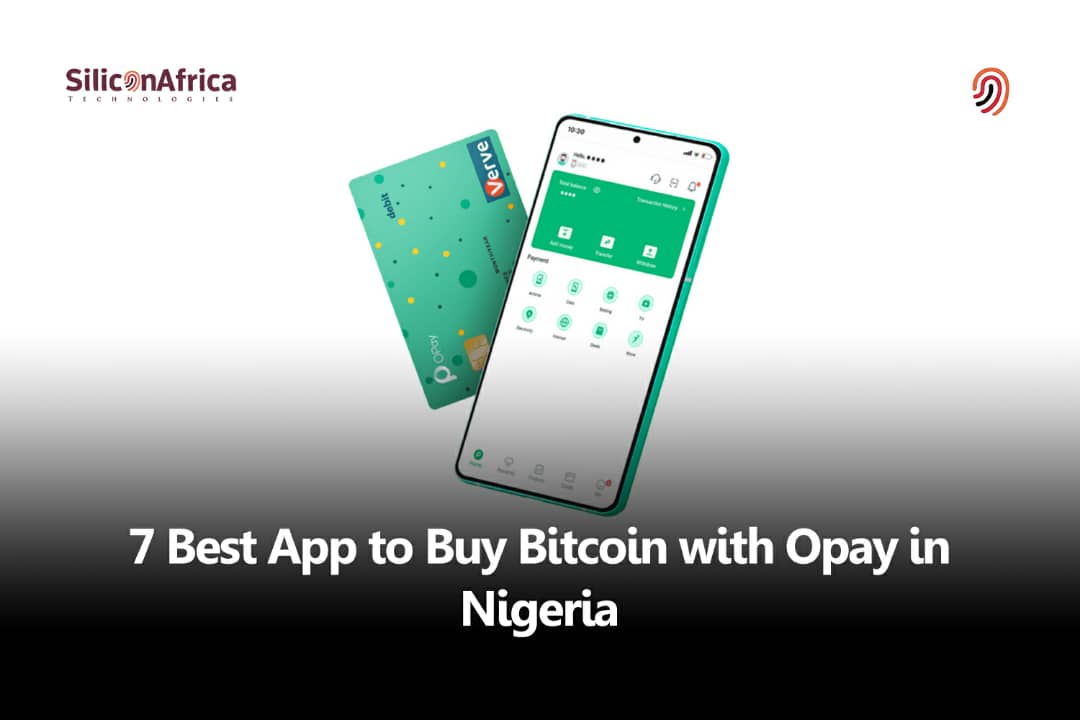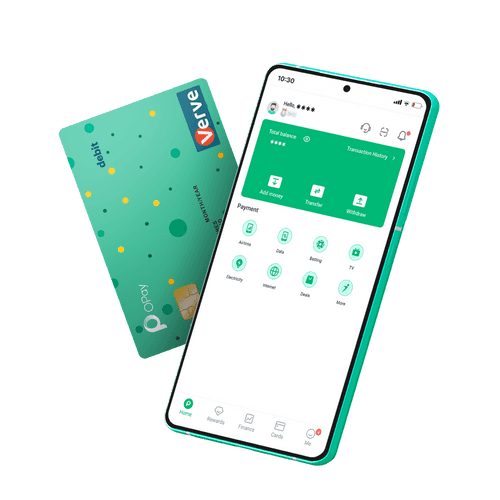Physical Address
60 Ekwema Cres, Layout 460281, Imo
Physical Address
60 Ekwema Cres, Layout 460281, Imo

Bitcoin has gained significant traction in Nigeria due to its potential as a digital investment and a hedge against economic uncertainties.
On the other hand, Opay’s seamless payment solutions have made it a preferred method for buying Bitcoin, offering users a hassle-free experience.
Peer-to-Peer (P2P) platforms have emerged as key avenues for Nigerians to buy Bitcoin, providing direct interactions between buyers and sellers.

Security, fees, limits, and ease of use are crucial when selecting an app for Bitcoin transactions.
Also read: How to Buy Crypto with DCU Bank Transfer
In recent years, Bitcoin has captured the imagination of Nigerians, transforming lives and offering new opportunities. Let’s see why this digital currency has gained significant traction in Nigeria.
See this: How to Easily Use the Creator Search Insight Tool for your TikTok Content Strategy 2025
When selecting a Bitcoin app, consider the essential factors:
Bitcoin’s popularity in Nigeria reflects economic realities and the desire for financial empowerment. As more Nigerians embrace this digital revolution, the landscape of financial transactions continues to evolve.
Also read: How to Buy Bitcoin in Nigeria With a Bank Transfer
Opay offers multifaceted services, including mobile payments, ride-hailing, and Bitcoin transactions, catering to a diverse user base across Nigeria.

Moreover, Bitcoin is a digital asset due to its decentralized nature and limited supply, offering potential long-term value. By linking users to P2P marketplaces, Opay facilitates Bitcoin purchases, enabling seamless fiat-to-crypto conversions.
Furthermore, understanding Bitcoin wallets is essential because they securely store your digital assets, serving as a gateway to the crypto world.
Buying Bitcoin involves inherent risks such as scams and fraud. Therefore, it is crucial to adopt robust security measures. Reputable apps provide features like escrow services and stringent verification processes to enhance transaction security.
Additionally, Nigeria’s regulatory stance on Bitcoin is still undefined, which further urges users to exercise caution and diligence when engaging in Bitcoin transactions. Users can navigate the Bitcoin marketplace more safely and confidently by prioritizing security and staying informed about potential risks.
Also read: How to Convert Bitcoin to Naira? Your Complete Guide to Selling Bitcoin for Naira in 2025
When selecting a crypto exchange that suits your needs, consider several important factors. Here are the most crucial aspects to examine:
To buy cryptocurrencies beyond Bitcoin, check the list of supported assets before deciding on an exchange. Some platforms support only a few cryptocurrencies, while others allow you to trade hundreds.
Crypto exchanges typically offer several ways to fund your account or purchase cryptocurrencies directly. Most exchanges support wire transfers, but some also allow you to buy crypto using credit cards, debit cards, and other digital payment methods.
High fees can significantly reduce your investment returns. Therefore, it is important to research the fee structures of crypto exchanges before opening an account. Exchanges typically charge trading fees and withdrawal fees, but other transaction fees can also apply.
Crypto exchanges are prime targets for hackers aiming to steal cryptocurrency. Security breaches and cyber theft are common, making it essential to choose an exchange with strong security measures in place.
If you are new to cryptocurrency or investing, you may have questions or need assistance getting started. In such cases, selecting an exchange with excellent customer support is advisable.
Research its reputation before signing up for an account on a crypto exchange. Read customer reviews, investigate the exchange’s history, and look for recent news stories that might provide valuable insights.
Considering these factors, you can choose a crypto exchange that best meets your needs and ensures a secure and efficient trading experience.
Also read: Top 7 Bitcoin Wallet Apps for iPhone in Ghana
When you purchase Bitcoin, you receive ownership of the amount you bought, which includes two keys: a public key and a private key. The public key serves as your wallet address and encrypts information. In contrast, the private key lets you decrypt information and access your Bitcoin. Safeguarding your private key is crucial.
Your Bitcoin ownership is securely recorded, stored, validated, and encrypted on the blockchain. Due to the encryption methods used, no known instances of cryptocurrency are stolen by altering blockchain information. With current technology, it would take centuries, if not millennia, to brute-force hack a blockchain.
However, the wallet you use to store your private key, typically software on a hardware device, can be vulnerable to hacking. This makes the weak link between the blockchain and the user.
Anything that allows you to access your Bitcoin, such as third-party apps or wallets that store or enter your keys for you, is susceptible to hacking.
There are two main categories of storage, custodial and non-custodial, and four types of wallets: desktop, mobile, hardware, and web-based.
Desktop Wallet:
A program is installed on your computer. It is not the safest storage method.
Mobile Wallet:
A program hosted on a mobile device. It is not very secure.
Hardware Wallet:
A device similar to a USB drive. It is secure, depending on its connectivity and usage.
Web-based Wallet:
A wallet hosted by a web service. It is not secure as someone else stores your keys.
Whether a wallet is connected to the internet determines if it is a hot or cold wallet. Using a top-rated Bitcoin wallet with cold storage capabilities can help increase your Bitcoin and crypto security.
A custodial wallet is managed by a third party, such as an exchange like Coinbase. The custodian stores your private keys, ensuring their safety and sometimes providing insurance on holdings up to a certain amount. Although custodial wallets have been targets of attacks, exchanges have strengthened their services by moving users’ keys into enterprise-level secure data storage.
Custodial wallets can be either hot or cold.
Non-custodial wallets store your keys without involving third parties. These wallets can also be hot or cold.
Hot Wallet:
Hot wallets store your keys and have internet connections, creating vulnerability. While most users access and make transactions in Bitcoin through hot wallets, they can be hacked. It is estimated that about 17% of Bitcoin in circulation has been lost due to misplaced keys or forgotten information.
Cold Wallet:
A cold wallet (or cold storage) is not connected to the internet, significantly reducing the risk of being compromised. These are also known as offline or hardware wallets.
Related article: Exclusive: Meet the African Innovator Who Invented a Self-Powered TV & Hybrid Engine-Powered Helicopter
The safest methods for storing your keys and securing your Bitcoin are those you manage yourself without an internet connection.
Commercial Non-Custodial Cold Wallets:
Products like the Ledger Nano X or Trezor Model T are available options. These USB-like devices connect to your device and, when used safely, are more secure than storing your keys in a connected device’s wallet. Many of these wallets store your private key and come with parallel software, allowing you to view and use your holdings without entering your private keys.
These devices often advertise compatibility with DeFi applications, which have been frequent targets of cryptocurrency hacks. When choosing these products, consider options that disable connectivity after use. The vulnerabilities lie in the software and connections used on your device or storage media.
Alternative Non-Custodial Cold Wallets:
Several methods can secure your Bitcoin keys from hackers and thieves. For example, you can use USB drives effectively if you encrypt and safeguard them, disconnect them when not in use, store them securely, make backups, and only use them on one device for one purpose.
One original method is writing down keys on paper and storing them in a safe. While secure, paper can deteriorate, or ink can bleed over time. If you choose this method, ensure trusted individuals have access and periodically check on the paper.
Some users generate QR codes for keys, print them, and store them in safes. However, this method introduces additional software access to your keys. Avoid using websites to generate codes as they can be hacked or hijacked.
By carefully selecting and managing your storage methods, you can significantly enhance the security of your Bitcoin holdings.
Also read: How to Buy Bitcoin with Paytm Online Wallet in Nigeria
Opay is a multi-service platform offering mobile payments, ride-hailing, and other financial services in Nigeria. It facilitates Bitcoin transactions by linking users to Peer-to-Peer (P2P) marketplaces, enabling seamless fiat-to-crypto conversions.
The primary risks include scams and fraud, as P2P marketplaces involve direct transactions between buyers and sellers. To mitigate these risks, use reputable platforms that offer escrow services and require thorough user verification processes. Always exercise caution and diligence when conducting transactions.
Custodial Wallets are managed by a third party, such as an exchange, which stores your private keys and often provides insurance on holdings. They can be either hot (connected to the internet) or cold (offline).
Non-Custodial Wallets: You manage your private keys without involving third parties. These wallets can also be hot or cold. Non-custodial wallets provide greater control and security over your assets, but you must ensure proper key management.
The safest way to store Bitcoin is through cold storage methods not connected to the internet. These include:
Hardware Wallets: Devices like the Ledger Nano X or Trezor Model T securely store private keys offline.
Paper Wallets: Physically writing down your private keys and storing them securely.
Encrypted USB Drives: Using USB drives to store encrypted private keys and keeping them disconnected from the internet when not in use.
Bitcoin’s growing popularity in Nigeria, combined with the convenience of Opay as a payment method, has made purchasing Bitcoin more accessible. However, choosing the right app for your needs is crucial, considering factors like supported assets, payment methods, fees, security, customer service, and reputation.
Understanding Bitcoin storage is equally essential. While the blockchain provides a secure record of your transactions, wallets that store your private keys are vulnerable. Distinguishing between custodial and non-custodial wallets, as well as hot and cold storage methods, is vital for protecting your digital assets.
Interact with us via our social media platforms:
Facebook: Silicon Africa
Instagram: Siliconafricatech
Twitter: @siliconafritech